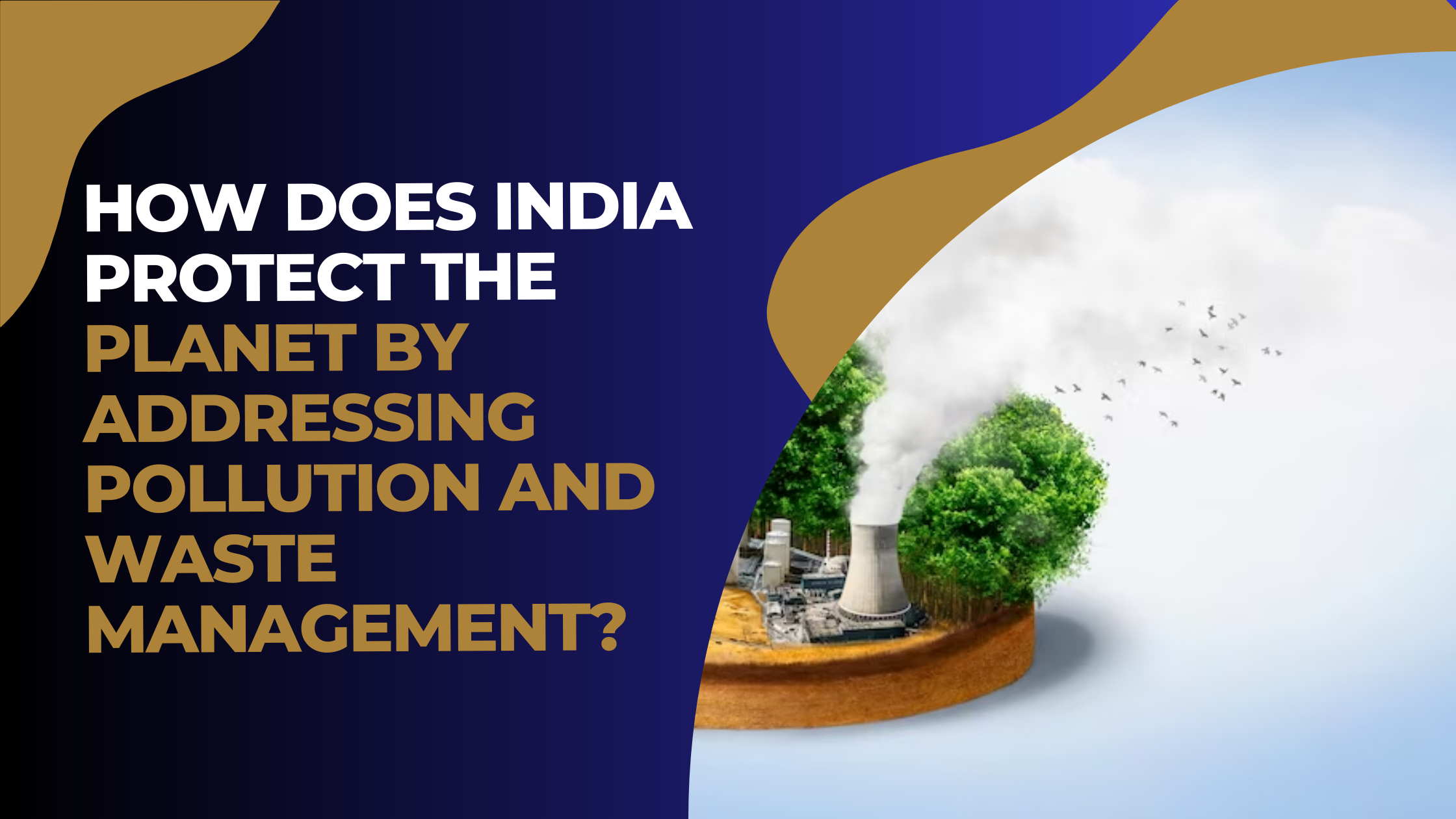How does India protect the Planet by addressing Pollution and Waste Management?
Do we have laws that address pollution and waste management in India?
Yes. Environmental laws play a crucial role in addressing pollution and waste management. These laws are designed to protect our planet and ensure sustainable practices. Let us explore how environmental laws tackle pollution and waste management, the fundamental principles behind them, and the impact they have on our environment and society.
-
Understanding Pollution and Waste Management:
Before delving into how environmental laws address pollution and waste management, it is essential to understand the basic concepts:
- Pollution refers to the introduction of harmful substances or contaminants into the environment, causing adverse effects on ecosystems, human health, and the planet as a whole.
- Waste management involves the collection, treatment, and disposal of waste materials in a manner that minimizes environmental impact.
-
The Role of Environmental Laws :
Environmental laws provide a legal framework to regulate and control pollution and waste management practices. They establish standards, guidelines, and procedures that individuals, businesses, and industries must follow to minimize their environmental footprint. The aim is to prevent pollution, promote sustainable waste management practices, and hold responsible parties accountable for any harm caused to the environment.
-
Regulatory Measures for Pollution Control
Environmental laws employ various regulatory measures to control pollution. These include setting emission limits for industries, regulating the use of hazardous substances, and implementing pollution prevention programs. Depending upon the industry, they may also require using pollution control technologies, such as air and water filtration systems, to reduce harmful emissions and discharges. Additionally, environmental impact assessments are often conducted to evaluate the potential environmental consequences of proposed projects.
-
Waste Management Regulations
Environmental laws also address waste management by establishing regulations for waste handling, treatment, and disposal. These regulations promote the reduction, reuse, and recycling of waste materials to minimize the amount of waste sent to landfills. The project may require proper segregation of waste, the establishment of recycling programs, and the implementation of safe disposal methods for hazardous waste. They also encourage the development of sustainable waste management infrastructure and the promotion of circular economy principles.
-
Enforcement and Compliance:
To ensure the effectiveness of environmental laws – enforcement, and compliance mechanisms are put in place. Regulatory agencies monitor and inspect industries and businesses to ensure they adhere to pollution control and waste management regulations. Non-compliance can result in penalties, fines, or legal action. Public participation and reporting mechanisms also play a vital role in identifying and addressing environmental violations.
Conclusion
Environmental laws are essential in addressing pollution and waste management. By setting standards, promoting sustainable practices, and enforcing compliance, these laws help protect our environment, safeguard human health, and create a more sustainable future for generations to come.
Environmental laws provide the legal framework necessary to address pollution and waste management effectively. By regulating pollution control measures and waste management practices, these laws aim to minimize environmental harm and promote sustainable development. It is crucial for individuals, businesses, and governments to understand and comply with these laws to ensure a cleaner and healthier planet for all.
Elixir Legal Services is a renowned legal firm specializing in environmental law. With a team of highly skilled and experienced attorneys, they provide comprehensive legal services to individuals, businesses, and organizations seeking guidance and representation in environmental matters. Elixir is known for its commitment to excellence, professionalism, and client satisfaction. They have a deep understanding of the intricate legal landscape surrounding environmental issues and stay up-to-date with the latest developments in environmental law. Whether it’s advising on compliance with environmental regulations, representing clients in environmental litigation, or providing strategic counsel on sustainable practices.
It is dedicated to deliver top-notch legal services tailored to the client’s specific needs. Their expertise, combined with a client-centric approach, makes Elixir Legal services a trusted partner for everyone’s environmental legal needs.


